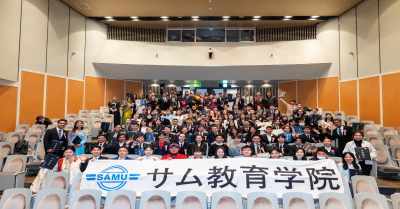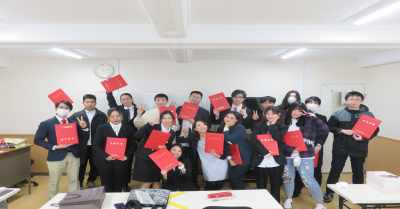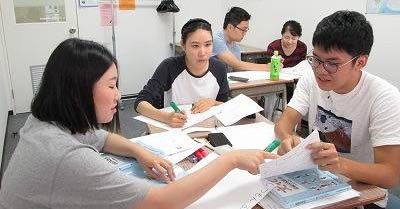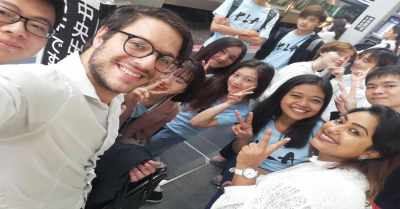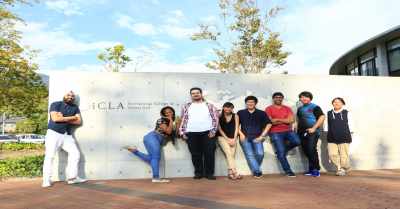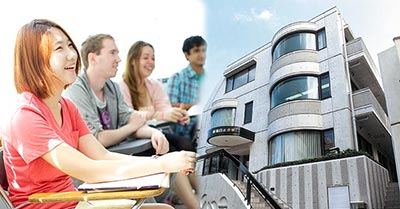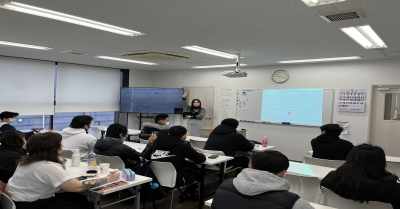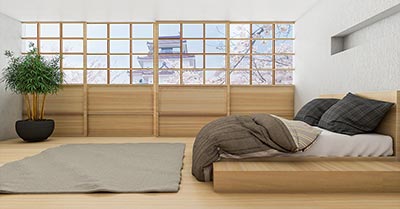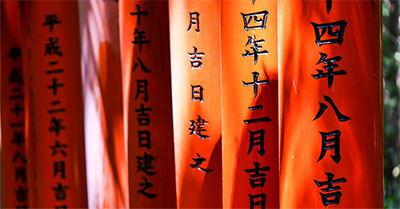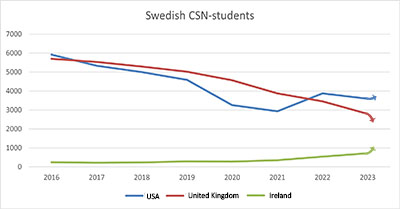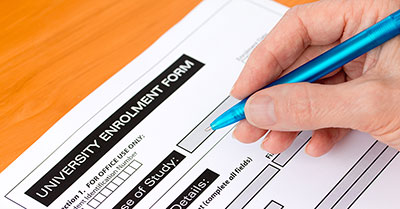Study in Japan
Konichiwa! Are you interested in studying in Japan? Here we take a closer look at schools, programs, exams, visa, and other things you should think about if you want to study in Japan.
The Japanese language and language levels
How much does it cost to study in Japan?
Scholarships for studying in Japan
Student visa to study in Japan
Insurance when you study abroad in Japan
Can you help me to study in Japan?
Summary - how to study in Japan in 7 steps
Why study in Japan?
There are many reasons to study in Japan. The first and foremost is the cultural experience. Japan has one foot firmly rooted in East Asian culture but they also have a strong influence of Western and American culture. However on top of that you have a truly unique Japanese culture that don’t resemble anything else.
Japanese pop culture attracts loads of young people around the world. Many students learnt their first Hiragana characters while reading Japanese Manga and first got exposed to the spoken language when watching Anime. J-pop, Cosplay, and Japanese fashion all have a strong appeal as do the more traditional culture with Samurais, temples and ancient stories.

Japan is also the home of some of the world’s leading tech and car companies such as Sony, Nikon, Canon, Hitachi, Toyota, Honda, Mitsubishi, Nissan etc. Just going to the toilet in Japan can be a technological experience. At the same time Japan is also a very traditional society where job applications are written by hand and salaries often are paid in cash. Simple things that you can do online in many countries might require a personal visit to an office in Japan.
Japan is a very safe country with low crime rates and most people are very polite. They also expect you to behave in a similar manner, but if you look like a foreigner you can get away with a lot. Japanese service is among the best in the world and you never pay tip. Food is excellent, even if you go to a cheap place or just buy some discounted ready food in the evening at the local supermarket.
There is so much to do in Japan once you get to know the place and the language better. Living in Japan can be frustrating at times but most people will miss it when they go home. Nowhere else can offer you such food and service, such unlimited shopping and crazy activities in such a safe and polite environment. It is hard to fully grasp Japan even if you have been there for a long time there will always be more to discover.
The Japanese Education System
Japan has one of the most highly educated and skilled populations in the world. This is one of the key factors for the country’s post-war economic takeoff and rapid growth.
There are private and public schools at all levels from kindergarten to university. Public schools charge very affordable fees and are popular choices for compulsory education up to lower secondary levels (junior high school). From upper secondary level education, a private school can be an investment for the fierce competition for university entry. Job opportunities are closely linked to your university degree.
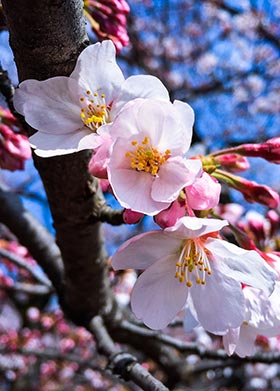
International education in Japan
Japan is experiencing a “super-aging” society with a shrinking population, therefore the country is ambitious to make education international to attract foreign talents and replenish the declining domestic workforce.
While more universities start to offer some programs and courses in English, Japanese language is still essential in all aspects from social integration, cultural assimilation to academic and professional interaction.
Japanese language schools play a critical role to prepare foreigners culturally and socially to function in Japanese society, to pursue study higher education, and to participate in the employment market.
Japanese language schools
The Japanese language is the gateway to Japan, whether you want to study, work or just get the most out of your stay. Therefore most students start by studying Japanese at a language school. You can take a short term language courses of 2-12 weeks or you can sign up for a long term program.
Japanese people are not very good at English and the universities only offer a few programs in English. So if you want to study in Japan for a longer period of time then you had better start by learning Japanese. Language schools usually teach four semesters of 10 weeks per year. If you are a beginner you can study 80 weeks at a Japanese language school and that might be needed if you want to continue in a higher education program taught in Japanese.
Once you master the Japanese language you can continue your studies at a Japanese university or a Senmon Gakko – a Japanese vocational College. Read more about Japanese Language Schools in Tokyo, Kyoto, Osaka, and other places, see our page with schools in Japan.
Universities in Japan - with English programs
Japanese universities offer 4-year undergraduate programs, 2-years graduate programs, and 3-4 years of doctoral programs. The academic year starts in April and ends in March, with summer vacation from mid-July to the beginning of September, and winter vacation from the end of December to the beginning of January.
The highest-ranking universities are Tohoku University, Kyoto University, and the University of Tokyo. On our Japan page, you can find a list of universities in Japan that ranks the top 100 in the country.
Most programs are taught in Japanese but nowadays universities often offer some programs in English as well, but on undergraduate level they usually only offer a few programs focusing on International Studies or Social Science. We can help you apply to undergraduate programs in English with a good chance to get scholarships at Yamanashi Gakuin University (Global Business, Political Science, Arts, Japan Studies) and Bachelor and Master programs in Engineering at Kyoto University of Advanced Science (mechatronics, robotics, mechanics, electronics and IT).
Vocational college – Senmon Gakko
Another popular school form in Japan is vocational schools, also known as junior colleges/Senmon Gakko, with a focus on practical training in specialized professions. International students often attend these schools to study practical subjects such as game design, anime, manga, music, dance, illustration etc. However, Senmon Gakkos also teach subjects such as industry, agriculture, nursing, education and social welfare, business, and homemaking.
Most Senmon Gakko programs take two years and give you a Diploma that allows you to transfer to a university. Three-year programs give you an Advanced Diploma which gives you eligibility to graduate school. We can help you with Senmon Gakko programs at on of Adachi Education Groups 17 different campuses in Tokyo, Nagoya, Osaka, and on Kyushu.
Foreigners who want to stay and work in Japan after their studies must have either a Senmon Gakko diploma or an undergraduate degree from a university (in Japan or abroad). To work in a Japanese company or study at a Senmon Gakko you must start by learning Japanese as explained above.
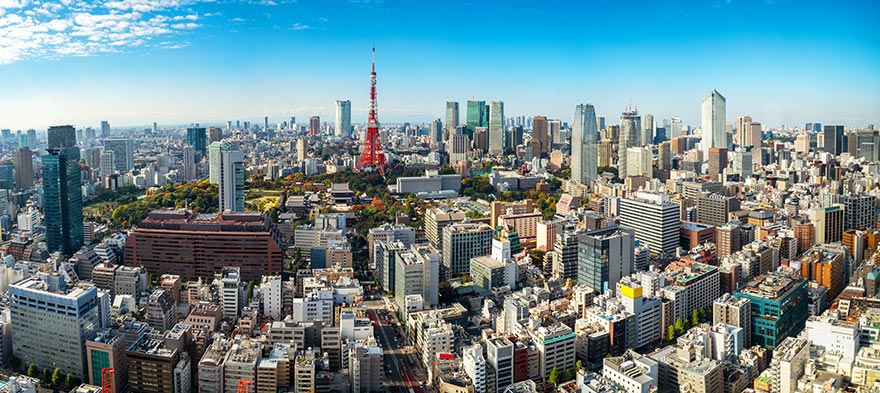
When and how to apply?
University application
Most universities in Japan recruit twice a year, for the spring semester starting in April, and the autumn semester in September. There is not a unified admission platform for students to apply centrally. Each university sets its own schedule, so the application deadline can be different from school to school, usually 6 months before the start of the semester. Nowadays many universities open their applications online and you can find their application deadlines on their website.
Here is an example of the application schedule and procedures for Japanese universities:
|
Schedule |
Spring Semester |
Autumn Semester |
|
Submit the initial application online and pay the application fee |
November |
March |
|
Post additional application documents to school |
December |
April |
|
Notice of admission |
February |
June |
|
Tuition payment and visa application: |
February - March |
July - August |
|
School start |
April |
September |
The documents you need to submit with your application are usually:
- Application form
- Personal statement
- Official transcript from high school and/or university
- Graduation certificate
- Valid standardized test scores (SAT/ACT/TOEFL/IELTS/EJU)
- Letters of Recommendation
- Passport photocopy
Japanese language school application
Japanese Language Schools have a quarter system where each quarter is ten weeks long. The main start dates are April and October, but many language schools also have start dates in January and July. Some schools have short term courses start every month and more Westernized schools like GenkiJacs have start dates every Monday for non-beginner students.
Short term courses can be a couple of weeks up to 3 months long, without a student visa. For long term courses (20+ weeks) you need to start your application 6 months in advance to most language schools due to the visa application that is done through the school.
Here is an example of the application schedule and procedures for Japanese Language Schools:
|
Course start |
April |
July |
October |
January |
|
Application document preparation |
August - October |
December - February |
February - April |
June - August |
|
Deadline for submission & application fee payment |
End of November |
Middle of March |
Beginning of June |
Middle of September |
|
Notice of Result |
End of February |
End of May |
End of August |
End of November |
|
Tuition fee payment and final visa application |
March |
June |
September |
December |
Example of application documents needed:
- Application form ( School prescribed )
- Personal record ( School prescribed )
- Letter of financial support ( School prescribed )
- Diploma / degree copy of the highest level education
- Passport copy ( Photo page and all Japan entry stamp pages if applicable )
- Photos <6 - 8 photos> Size : 4cm X 3cm ( Passport photo size )
- Guarantor’s bank balance certificate ( Amount should be enough for your total cost )
- Guarantor’s employment and income certificate
- Relationship certificate between you and your guarantor
We can help you to choose and apply to schools in Japan. Fill out an information request to get help!
The Japanese language
Japanese language
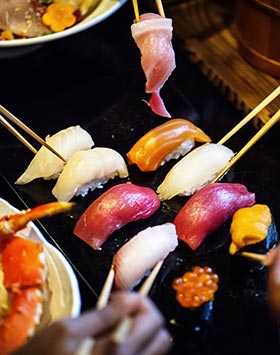
Is it difficult to learn Japanese or is it easy? The answer is that it is both difficult and easy. Japanese pronunciation is rather easy. Japanese consists of 46 syllables that can only be pronounced in one way. Almost all of those syllables exist in English and other European languages so you can master the pronunciation rather quickly and people will often understand you when you read Romanized written in our alphabet. Japanese also use thousands of English loan words, gairaigo, that has been adapted to Japanese pronunciation. Once you master this you will have immediately have access to a huge vocabulary.
The challenge when learning Japanese is the grammar, the levels in the language and not least the writing. Written Japanese consists of three writing languages. Hiragana and Katakana has one character per syllable where Katakana is only used for loan words. Those two writing languages are quite easy to learn but Kanji, the third writing language, consisting of a couple of thousand Chinese characters is much more challenging.
At Japanese language schools you can study Japanese from beginner level to advanced level. However many schools ask that beginners have at least a passive knowledge of Hiragana and Katakana when you start a long term course in Japan. You can learn those on your own by for example memorizing one character per day. Here are some resources for learning Hiragana and Katakana on your own.
Read more about learning Japanese.
JLPT and EJU exams
JLPT - Japanese Language Proficiency Test
The most representative Japanese language test is the Japanese Language Proficiency Test (JLPT). The test has 5 levels, staring from the basic level N5 to the highest level N1. These levels are roughly equivalent to CEFR levels A1 to C1.
The test is held twice a year for non Japanese native speakers who would like to use Japanese language accademically and professionally. The test in July is only for advanced levels of N1 and N2, and the December test is for all levels. However, in some countries the test is only given once a year in July and then all levels can be taken at this time.
It is estimated that to pass N3 the intermediate level one needs about 700-1000 study hours, equal to about a one year course in Japanese language school, and about 1200 - 1600 study hours, 1,5 - 2 years study for N2 level of academic and professional sufficiency.
JLPT N2 is required for study in vocational schools (Senmon Gakko).
Read more about JLPT and find test sites close to your home.
EJU – the Japanese University Exam
EJU is the examination for Japanese University Admission for International students, which is required for admission to many university undergraduate programs.
EJU is held twice a year, June and November, both in Japan and abroad (primarily in Asia). EJU consists of 4 subjects: Japanese as a foreign language, science, Japan and the World, and Mathematics. The university and the program you are applying for will decide which of the four test subjects you should take.
The Japanese as a Foreign Language secton is administered in Japanese only, while the other subjects are available in both English and Japanese.
Read more about EJU and find test sites.
Our Japanese language school partners have college/university preparatory courses to help students pass JLPT and/or EJU, and help them with the application to higher education institutions in Japan. Fill out an information request to get help to find a suitable Japanese language school.
How much does it cost to study in Japan?
Tuition fees in Japan
Schools in Japan charge an admission fee in the first year, and tuition fees and some other smaller fees per semester. Japanese law regulates that all schools have the same tuition for domestic students and international students.
A one year course at a Japanese language school costs approximately 700000 Yen and admission fee about 50000 Yen in the first semester. In total approximately 750000 Yen (about $7000 USD).
Public universities have unified prices: annual tuition fee of 535800 Yen, admission fee of 28200 Yen, plus other minor fees, about 850000 Yen (about $8000 USD) in total for the first year of undergraduate programs. Private universities vary on tuition fees and charge more than public universities up to twice as much, about 1600000 Yen (about $15000 USD) per year, but prices differ from school to school.
Senmon Gakko (vocational college) on average cost 1240000 Yen (about $11700 USD) for the first year, including admission fees. Programs of medicine, health, and art cost around 10% more while humanity programs about 10-15% less.
Living costs
On top of the tuition fees, you will probably need about 100000-150000 Yen per month to cover your living expenses such as accommodation, food, and travel, etc. If you study in a smaller city where the accommodation and travel costs are low you might get by on less, but in Tokyo, it is easy to spend much more especially if you live in your own apartment.
Many people think that Japan is expensive but this is not entirely true. Shopping and food is often cheaper than in Europe, not least considering the quality that you get. Student accommodation, on the other hand, can be a bit costly in Tokyo considering the size and standard that you get.
Scholarships for studying in Japan
You will need your own funding to support your study in Japan. However, the good news is that there are plenty of scholarships available for international students to apply for. It is possible to get a scholarship that covers part of your costs on degree programs at Japanese Universities. However, it is much harder to get scholarships for Japanese language courses and exchange semesters.
Some scholarships are long term up to a year, paid monthly, while other scholarships are one time amounts covering 25-100% percentage of your semester tuition fee. Most scholarships are only eligible for enrolled students with a student visa, which means you will have a better chance to apply for after having started your study in Japan. The scholarships are usuall awarded based on a combination of academic performance, extracurricular activities, and financial needs.
Here are some scholarships that international students can apply for to study in Japan:
- Scholarships by Mext: for degree students only
- Scholarships by Jasso: for degree students, japanese language students, and exchange students
- Scholarships by local governments
- Scholarships by international associations
- Scholarships by private foundations
- Scholarships by language schools and universities
Scholarships and discounts from us our partner schools in Japan:
| 50% scholarship at Waseda BK in Tokyo - Waseda BK Japanese Language Course (deadline 2024-12-31) |
| Scholarship and Campaign (2.5 years Course) - Akademeia 21st Century (Adachi Education Group) (deadline 2025-03-31) |
| Scholarships at Yamanashi Gakuin University (deadline 2025-04-17) |
You can also find more information at Jasso’s information page about scholarships in Japan
Work in Japan as a student

Students that have obtained a work permission are allowed to work part time in Japan. Then you can work 28 hours per week on school weeks and 40 hours per week during semester breaks. Students are not allowed to take any jobs related to night clubs or adult entertainment. This even includes being a DJ or working as a dishwasher in a night club.
Most students work in shops or restaurants where you can earn around 1000 Yen per hour. However it can be hard to find a job before you speak decent Japanese. The best paid jobs for students is often to work as a teacher in your native language. Either at a school or just give private conversation lessons in a café then it is not unusual to earn up to 3000 Yen per hour.
The work permit is a sticker in your passport. To obtain it you must be in Japan on a student visa. The easiest way to get the permit is to apply directly at the immigrations in the airport when you first arrive in Japan. Then you can get it immediately. Otherwise you will be stuck in the Japanese bureaucracy where you will need several visits to the Immigration Bureau and at least 3 weeks processing time before you can get your work permit.
Student visa to study in Japan
Many nationalities can take a short language course in Japan for up to 90 days on visa waiver. Some nationalities can even extend this with another 90 days. Read more about visa free entry to Japan.
If you want to study in Japan for a longer period of time you will need to apply for a student visa. This procedure starts with applying to and becoming accepted by a school in Japan including sending the school a number of visa related documents. You will need to apply to your school approximately 6 months before the course starts. Then they will send you a CoE, Certificate of Eligibility, about 1 month before your course starts. With this document you can do the final visa application at the Japanese Embassy in your home country.
Read more in our step by step guide on how to apply for a student visa to Japan.
Insurance when you study abroad in Japan
It is always important to have a good insurance when you study abroad and Japan is no exception. We recommend Dr Walter's Protrip World insurance.
If you are studying on a student visa in Japan you will be asked to pay a small monthly fee for the national health insurance. However, this is no replacement for a real insurance as it only covers 70% of your health care fees and nothing else. Some schools offer a top up insurance covering the remaining 30% but most of those insurances still don’t give you a complete coverage. You need an insurance that also covers transportation, accidents, theft, liability, legal costs etc.

Accommodation in Japan
The standard for student housing is simple in Japan. Rooms are small and insulation is poor. You will depend on your AC for heat in the winter and cooling in the summer.
Most students stay in either host families, share houses or apartments. We can help you to find accommodation in Japan at discounted prices.
Can you help me to study in Japan?
Yes, we have helped students study in Japan since 2006. We and our partners can help you to choose and apply to language schools and Senmon Gakko all over Japan and selected universities that offers programs in English. Fill out our request form and we will send you more information about studying in Japan.
Summary - how to study in Japan in 7 steps
- Find a suitable school in Japan. We recommend recommend that you start by learning Japanese in a Japanese Language School. Even if you want to study in English in Japan, learning Japanese is the key to enjoy and succeed in your life in Japan.
- Apply to your school at least six months before your course starts if you want to study on a student visa. Fill out an info request if you want help to choose and apply to a suitable school.
- Your school will then help you to apply for a student visa.
- Book student housing. You can do this a month or two before you arrive. You will always be able to find accomodation in Japan but it can be hard to book it many months in advance since students usually have a running contract with 30 days notice.
- Get a student insurance.
- Arrive in Japan and don't forget to apply for a work permit in the airport. That is the easiest way to get the permit if you arrive on a student visa.
- Enjoy your studies in Japan. Be prepared for an initial culture shock. So stay calm and open minded, explore and enjoy!
You will find more details in the article above. For more info on how to plan your studies see our checklist to study abroad.
